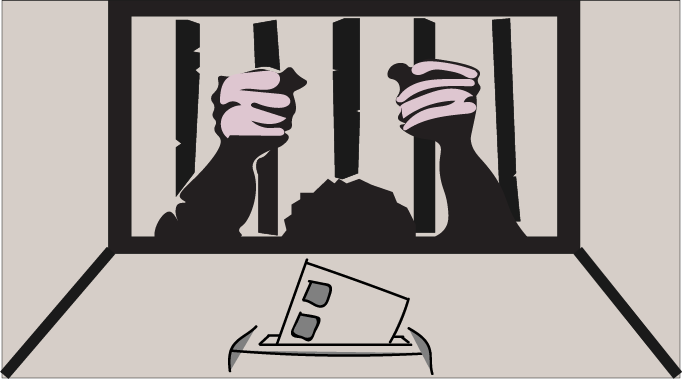My morning began with an apology. To the tea kettle, specifically.
“Sorry, sorry, I’m coming!” I muttered as I bustled across my little kitchen floor to end the whistling.
Tuesday, I apologized 38 times. I said sorry to the person I gently bumped into in the library. I said sorry to the person holding a door for me as he waited about five seconds for me to reach him. I said sorry to a professor when correcting him on the pronunciation of my own name. I said sorry to a friend when my knees cracked.
To be honest, I had to add two extra tallies in the second draft of this column because I apologized twice to my editor for not making deadline and for the first draft not making sense.
I started ticking off each one of these apologies on a little sheet of paper I carried around all Tuesday. This little informal social experiment of mine came after the widely circulated Pantene ads brought the idea of women saying sorry too often into the limelight of pop-culture feminism. When I apologized to my tea kettle I realized I was, first, being ridiculous, and second, despite my awareness of this issue, my “sorry”s flowed freely and regularly from my mouth. Am I really sorry that you pronounced my name wrong? Or do I just use it as a polite fluffer to seem non-threating?
In this cultural moment, it is hip to be a feminist. The Pantene ad exploded all over social media, popularizing the idea that women need to apologize less and be just as confident as the males in their lives. Other facets of feminism have ballooned into popular conscious as well. From Beyonce’s performance at the VMAs to the recent feminist praise tossed at Playboy, of all places, I have little to add to the conversation that hasn’t been said already. (Is this an apologetic sentence? If so, I’m sorry. Shoot. No, I’m NOT sorry. Still working on this no apologizing thing.) In this moment, it is cool to be a feminist. Which is fantastic. Really. But simply knowing the lyrics to “***Flawless” and watching a few ads before your YouTube videos becomes a soft feminism. How much can consumers really glean from a one-minute video?
One Boston group is unapologetically (pun intended) tackling these issues in a substantial way: New Wave–Young Boston Feminists, a Cambridge-based group founded in 2009. “This isn’t our grandmothers’ feminism–we draw on the great progress of previous generations while forging ahead and creating our own path,” the group’s mission statement reads. Knit together informally by the website Meetup, a networking site for local groups that strives to aid positive change by self organization, New Wave, has various scheduled conversations, lectures, and film screenings between anyone who has a little time and an interest in gender equality.
Posts on their Meetup page range from serious discussions defining feminism as “the process of working against large-scale oppressions including but not limited to sexism, homophobia, transphobia, ableism, classism, and racism” to more informal testimonies saying things like “I saw a poster for New Wave Feminism in a bookstore and was absolutely delighted at the thought of finding a socially conscious community.”
Regardless of the formality or informality of each member’s discussions on the site, New Wave’s unapologetic contribution to the feminist conversation in Boston flies in the face of much of the less substantial pop-culture feminism.
Once I heard about them, I was excited by the prospect of such valuable groups in my city. But one thought popped in my mind every time I made another tally mark on my tattered piece of notebook paper: I’m sure not one of them is apologizing to her tea kettle.
Featured Image by Maggie Powers / Heights Editor











